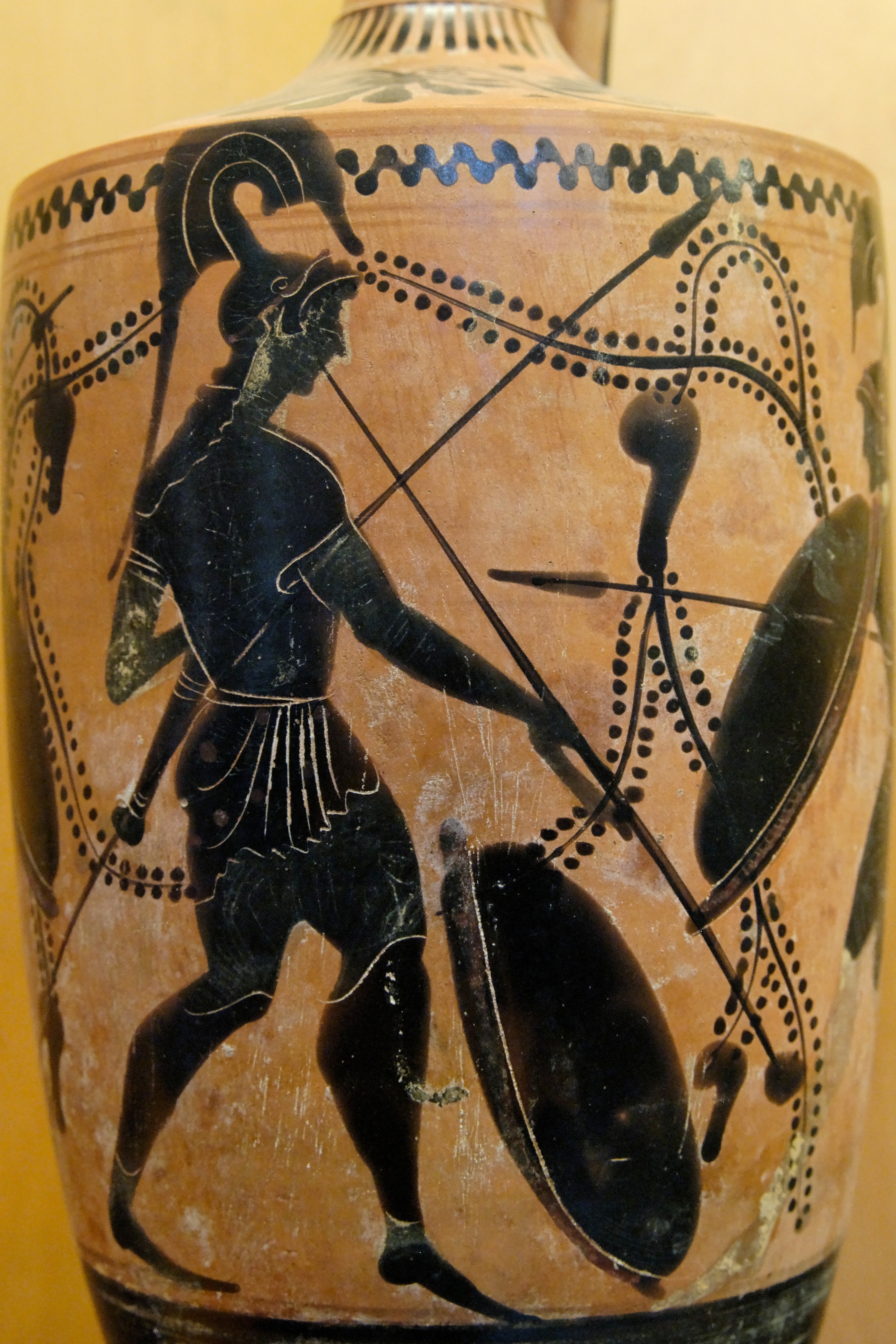|
Amoebaean Singing
Amoebaean singing is a type of singing competition originating in Ancient Greece. In it, a first party sings according to a topic and verse structure of their choosing. A second singer then responds with the same verse structure and on a related topic. This repeats until one side concedes or a third party can determine the winner. History The form is believed to have been used by Greek shepherds to entertain themselves. Later, it would evolve into a judged competition, consisting of multiple rounds of singing between competitors. Competitors would be judged more favorably if they could continue a theme through multiple rounds. The poet Theocritus relied heavily on Amoebaean singing, with it becoming his and his successors' "hallmark", according to David M. Halperin. Usage Amoebaean singing can be seen in Theocritus' ''Idyll 5: The Goatherd and the Shepherd'', in an exchange between the goatherd Comatas and the shepherd A shepherd or sheepherder is a person who tends, herd ... [...More Info...] [...Related Items...] OR: [Wikipedia] [Google] [Baidu] |
Singing
Singing is the act of creating musical sounds with the voice. A person who sings is called a singer, artist or vocalist (in jazz and/or popular music). Singers perform music (arias, recitatives, songs, etc.) that can be sung with or without accompaniment by musical instruments. Singing is often done in an ensemble of musicians, such as a choir. Singers may perform as soloists or accompanied by anything from a single instrument (as in art song or some jazz styles) up to a symphony orchestra or big band. Different singing styles include art music such as opera and Chinese opera, Indian music, Japanese music, and religious music styles such as gospel, traditional music styles, world music, jazz, blues, ghazal, and popular music styles such as pop, rock, and electronic dance music. Singing can be formal or informal, arranged, or improvised. It may be done as a form of religious devotion, as a hobby, as a source of pleasure, comfort, or ritual as part of music education or ... [...More Info...] [...Related Items...] OR: [Wikipedia] [Google] [Baidu] |
Ancient Greece
Ancient Greece ( el, Ἑλλάς, Hellás) was a northeastern Mediterranean civilization, existing from the Greek Dark Ages of the 12th–9th centuries BC to the end of classical antiquity ( AD 600), that comprised a loose collection of culturally and linguistically related city-states and other territories. Most of these regions were officially unified only once, for 13 years, under Alexander the Great's empire from 336 to 323 BC (though this excludes a number of Greek city-states free from Alexander's jurisdiction in the western Mediterranean, around the Black Sea, Cyprus, and Cyrenaica). In Western history, the era of classical antiquity was immediately followed by the Early Middle Ages and the Byzantine period. Roughly three centuries after the Late Bronze Age collapse of Mycenaean Greece, Greek urban poleis began to form in the 8th century BC, ushering in the Archaic period and the colonization of the Mediterranean Basin. This was followed by the age of Classical G ... [...More Info...] [...Related Items...] OR: [Wikipedia] [Google] [Baidu] |
Shepherd
A shepherd or sheepherder is a person who tends, herds, feeds, or guards flocks of sheep. ''Shepherd'' derives from Old English ''sceaphierde (''sceap'' 'sheep' + ''hierde'' 'herder'). ''Shepherding is one of the world's oldest occupations, it exists in all parts of the globe, and it is an important part of Pastoralism, pastoralist animal husbandry. Because of the ubiquity of the profession, many religions and cultures have symbolic or metaphorical references to the shepherd profession. For example, Jesus called himself the Good Shepherd, and ancient Greek mythologies highlighted shepherds such as Endymion (mythology), Endymion and Daphnis. This symbolism and shepherds as characters are at the center of pastoral literature and art. Origins Shepherding is among the oldest occupations, beginning some 5,000 years ago in Asia Minor. Sheep were kept for their milk, sheep meat, meat and especially their wool. Over the next thousand years, sheep and shepherding spread throughout ... [...More Info...] [...Related Items...] OR: [Wikipedia] [Google] [Baidu] |
Theocritus
Theocritus (; grc-gre, Θεόκριτος, ''Theokritos''; born c. 300 BC, died after 260 BC) was a Greek poet from Sicily and the creator of Ancient Greek pastoral poetry. Life Little is known of Theocritus beyond what can be inferred from his writings. We must, however, handle these with some caution, since some of the poems ('' Idylls''; ) commonly attributed to him have little claim to authenticity. It is clear that at a very early date two collections were made: one consisting of poems whose authorship was doubtful yet formed a corpus of bucolic poetry, the other a strict collection of those works considered to have been composed by Theocritus himself. Theocritus was from Sicily, as he refers to Polyphemus, the Cyclops in the ''Odyssey'', as his "countryman." He also probably lived in Alexandria for a while, where he wrote about everyday life, notably '' Pharmakeutria''. It is also speculated that Theocritus was born in Syracuse, lived on the island of Kos, and lived in E ... [...More Info...] [...Related Items...] OR: [Wikipedia] [Google] [Baidu] |
David M
David (; , "beloved one") (traditional spelling), , ''Dāwūd''; grc-koi, Δαυΐδ, Dauíd; la, Davidus, David; gez , ዳዊት, ''Dawit''; xcl, Դաւիթ, ''Dawitʿ''; cu, Давíдъ, ''Davidŭ''; possibly meaning "beloved one". was, according to the Hebrew Bible, the third king of the United Kingdom of Israel. In the Books of Samuel, he is described as a young shepherd and harpist who gains fame by slaying Goliath, a champion of the Philistines, in southern Canaan. David becomes a favourite of Saul, the first king of Israel; he also forges a notably close friendship with Jonathan, a son of Saul. However, under the paranoia that David is seeking to usurp the throne, Saul attempts to kill David, forcing the latter to go into hiding and effectively operate as a fugitive for several years. After Saul and Jonathan are both killed in battle against the Philistines, a 30-year-old David is anointed king over all of Israel and Judah. Following his rise to power, David ... [...More Info...] [...Related Items...] OR: [Wikipedia] [Google] [Baidu] |
Idyll
An idyll (, ; from Greek , ''eidullion'', "short poem"; occasionally spelt ''idyl'' in American English) is a short poem, descriptive of rustic life, written in the style of Theocritus' short pastoral poems, the ''Idylls'' (Εἰδύλλια). Unlike Homer, Theocritus did not engage in heroes and warfare. His idylls are limited to a small intimate world, and describe scenes from everyday life. Later imitators include the Roman poets Virgil and Catullus, Italian poets Torquato Tasso, Sannazaro and Leopardi, the English poet Alfred, Lord Tennyson (''Idylls of the King''), and Nietzsche's ''Idylls from Messina''. Goethe called his poem ''Hermann and Dorothea''—which Schiller considered the very climax in Goethe's production—an idyll. Terminology The term is used in music to refer generally to a work evocative of pastoral or rural life such as Edward MacDowell's ''Forest Idylls'', and more specifically to a kind of French courtly entertainment (''divertissement'') of the baroque ... [...More Info...] [...Related Items...] OR: [Wikipedia] [Google] [Baidu] |
Goatherd
A goatherd or goatherder is a person who herds goats as a vocational activity. It is similar to a shepherd who herds sheep. Goatherds are most commonly found in regions where goat populations are significant; for instance, in Africa and South Asia South Asia is the southern subregion of Asia, which is defined in both geographical and ethno-cultural terms. The region consists of the countries of Afghanistan, Bangladesh, Bhutan, India, Maldives, Nepal, Pakistan, and Sri Lanka.;;;;;;;; .... Goats are typically bred as dairy or meat animals, with some breeds being shorn for wool. The top six goat industry groups in the United States include: meat (includes show), dairy (includes show, pygmy and Nigerian dwarf), fiber or hair (angora, cashmere), 4-H, industrial (weed control, hiking/pack), and biotech (see Goat#Agriculture, Goats in agriculture). Companies using goats to control and eradicate Euphorbia virgata, leafy spurge, knapweed, and other toxic weeds have sprouted acros ... [...More Info...] [...Related Items...] OR: [Wikipedia] [Google] [Baidu] |
Ancient Greek Music
Music was almost universally present in ancient Greek society, from marriages, funerals, and religious ceremonies to theatre, folk music, and the ballad-like reciting of epic poetry. It thus played an integral role in the lives of ancient Greeks. There are some fragments of actual Greek musical notation, many literary references, depictions on ceramics and relevant archaeological remains, such that some things can be known—or reasonably surmised—about what the music sounded like, the general role of music in society, the economics of music, the importance of a professional caste of musicians, etc. The word ''music'' comes from the Muses, the daughters of Zeus and patron goddesses of creative and intellectual endeavours. Concerning the origin of music and musical instruments: the history of music in ancient Greece is so closely interwoven with Greek mythology and legend that it is often difficult to surmise what is historically true and what is myth. The music and music the ... [...More Info...] [...Related Items...] OR: [Wikipedia] [Google] [Baidu] |
.jpg)
.jpg)

.jpg)

